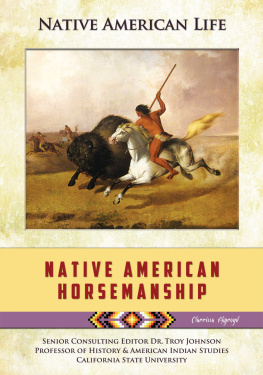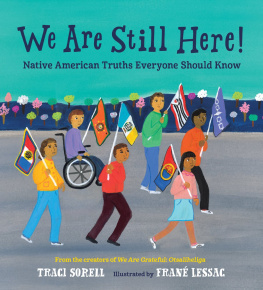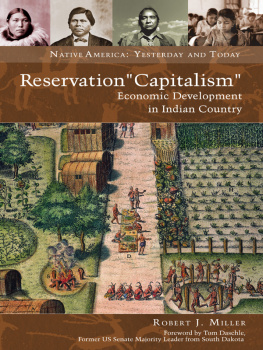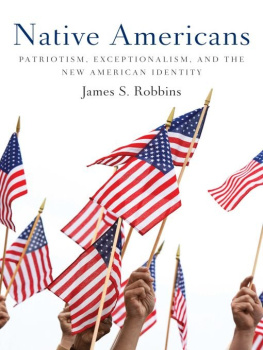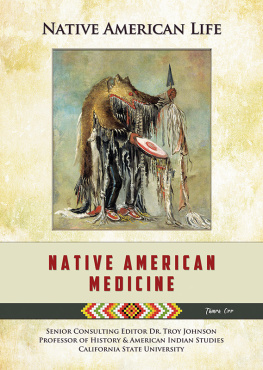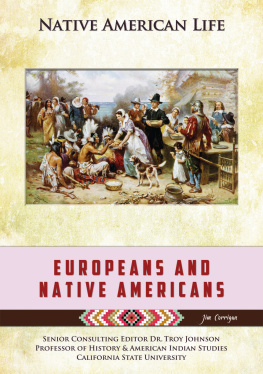FIRST AMERICANS
FIRST
AMERICANS
U.S. Patriotism in Indian Country
After World War I
THOMAS GRILLOT

Published with assistance from the Mary Cady Tew Memorial Fund.
First published in English by Yale University Press in 2018.
All rights reserved.
This book may not be reproduced, in whole or in part, including
illustrations, in any form (beyond that copying permitted by Sections 107 and 108 of the U.S. Copyright Law and except by reviewers for the public press), without written permission from the publishers.
Originally published as Aprs la grande guerre: Comment les Amrindiens des tats-Unis sont devenus patriotes (19171947). Copyright ditions de lEHESS, 2014.
Yale University Press books may be purchased in quantity for educational, business, or promotional use. For information,
please e-mail sales.press@yale.edu (U.S. office) or sales@yaleup.co.uk (U.K. office).
Set in Janson type by Integrated Publishing Solutions,
Grand Rapids, Michigan.
Printed in the United States of America.
ISBN 978-0-300-22433-7 (hardcover : alk. paper)
Library of Congress Control Number: 2017953543
A catalogue record for this book is available from the British Library.
This paper meets the requirements of ANSI/NISO Z39.48-1992 (Permanence of Paper).
10 9 8 7 6 5 4 3 2 1
Contents
Acknowledgments
T HIS WORK OWES MUCH to many individuals and institutions. Its subject matter is gift giving, and gifts have been given to me more than once throughout the course of its conception. It would have been impossible, in particular, without the help of the people I met in North Dakota and South Dakota. At the Standing Rock Reservation, I have been welcomed, entertained, and educated in many interactions, short or long, during the visits Ive made there since 2008. Many elders have been especially generous with their time and willing to share memories. Some of them have since passed away. I permit myself to single out especially the generosity and kindness of Everett Chasing Hawk and Adele Little Dog in Little Eagle; Etta Taken Alive in Bear Soldier; Germaine Eagle, Cecilia Brownotter, and Olley Little Eagle in Bullhead; Wilbur Flying By in McLaughlin; Alfred Blue Earth in Cannonball; Maxine White Bull, Elaine Saint John, Alma Little Bear, and Isabel Crow Feather in Kenel; and Melvin Shoots the Enemy in Fort Yates. At the tribal offices of the Standing Rock Sioux Tribes, the staff at the tribal historic preservation office, including Ladonna Brave Bull Allard, Byron Olson, and Wast Win Young, have been helpful beyond measure. At Sitting Bull College, Im particularly grateful for the support given me by Mark Ohlman and Mike Moore. Not too far from the reservation, Jim Davis at the State Historical Society of North Dakota in Bismarck and Ken Stewart at the South Dakota State Historical Society in Pierre have assisted me in countless requests for material. Farther away, at the National Archives, I want to extend special acknowledgment to William Davis (Washington, D.C.) as well as Tim Rives and Stephen Spence (Kansas City), who never hesitated to go out of their way to help me locate documents and even send some across the pond.
At a crucial time in the development of the project, a grant from the Georges Lurcy Charitable and Educational Trust facilitated a year of research and study at the University of Virginia. In Charlottesville, Olivier Zunz and Christian McMillen provided me with friendly and expert guidance and remained wonderful supporters years after I left the masters program. The History Department and the Maison franaise extended me exquisite hospitality. The first requirement to complete research studying in another country is to find a home there: Jennifer Bing, Florence and Robert Brodkey, and Rachel Kerwin and Victor Nemchenok have taken turns hosting me during my stays in the U.S. capital. Im still awed by their extraordinary willingness to open their door and help me make it through the ups and downs of archival research. Researchers in American Indian studies, history, and anthropology throughout the country have contributed suggestions, comments, and documents. Im especially grateful to Russel L. Barsh and Raymond DeMallie. Their scholarship has been an inspiration and shaped this project in more than one way.
In France, the project developed at the Centre dtudes nord-amricaines (CENA) of the cole des hautes tudes en sciences sociales (EHESS). Franois Weil directed the dissertation and introduced me to a research center where help is always offered gracefully. Several grants received from the CENA and the EHESS have been crucial to the traveling back and forth between France and the United States. The comments and suggestions of Nicolas Barreyre, Sara Le Menestrel, Pauline Peretz, Yann Philippe, Ccile Vidal, Jean-Christian Vinel, and many other graduate students, researchers, and visitors at the CENA have been critical throughout the different stages of a project that started in 2005. Annick Grandemange-Gurgel and Flavie Holzinger have helped me with maps, Elizabeth Rowley-Jolivet brought a precise and delicate touch to help me with the translation of a book that was originally published in French by the ditions de lcole des hautes tudes en sciences sociales in Paris.
To all, thanks are in order. But to Peggy Lefebvre, I have a special debt of gratitude. She has been an inspiration in more ways than she would care to admit.

Indian nations and schools mentioned in the book
FIRST AMERICANS
Introduction
The Problem of Indian Patriotism
The Indians are getting out. In every department of life he is found. He is side by side with the Whites. In business, in politics, in law, in medicine, in the arts, in the ministry, in agriculture, he has no mean representatives. There are more of them in the Army, in proportion of their numbers, than of any other class of our citizens. He is in the offices, on the farms, in Congress, in the shops, and somewhere in France.
C. L. HALL, 1918
T HE PATRIOTISM OF MINORITY GROUPS is a complex phenomenon, especially when these groups, like Native Americans in the United States, claim a distinct political existence as nations. But patriotism is almost by definition a contested notion for all groups, whether or not they belong to the majority. In the United States, patriotism has revolutionary origins and a more conservative history. Patriots, in 1775, were the members of the population of settlers originating mostly in the British Isles who decided to rebel against English tyranny. Based on an act of defiance and what self-identified loyalists regarded as treason, the revolt of North American colonists paradoxically launched the career of a word, patriotism, that eventually came to be identified, at the beginning of the twentieth century, precisely with loyalty and compliance. The transatlantic ties of immigrant groups, rivalries with the British Empire, and conflicts with Mexico tested the boundaries of this loyalty more than once over the course of the nineteenth century. Uncertain citizenship, insufficient knowledge of English and American political and social institutions, socialist leanings, or racial identification by U.S.-born Americans made immigrants of various origins the targets of campaigns that questioned their willingness or ability to assimilate and their determination to stand on the right side of international conflicts involving the United States.
Next page

